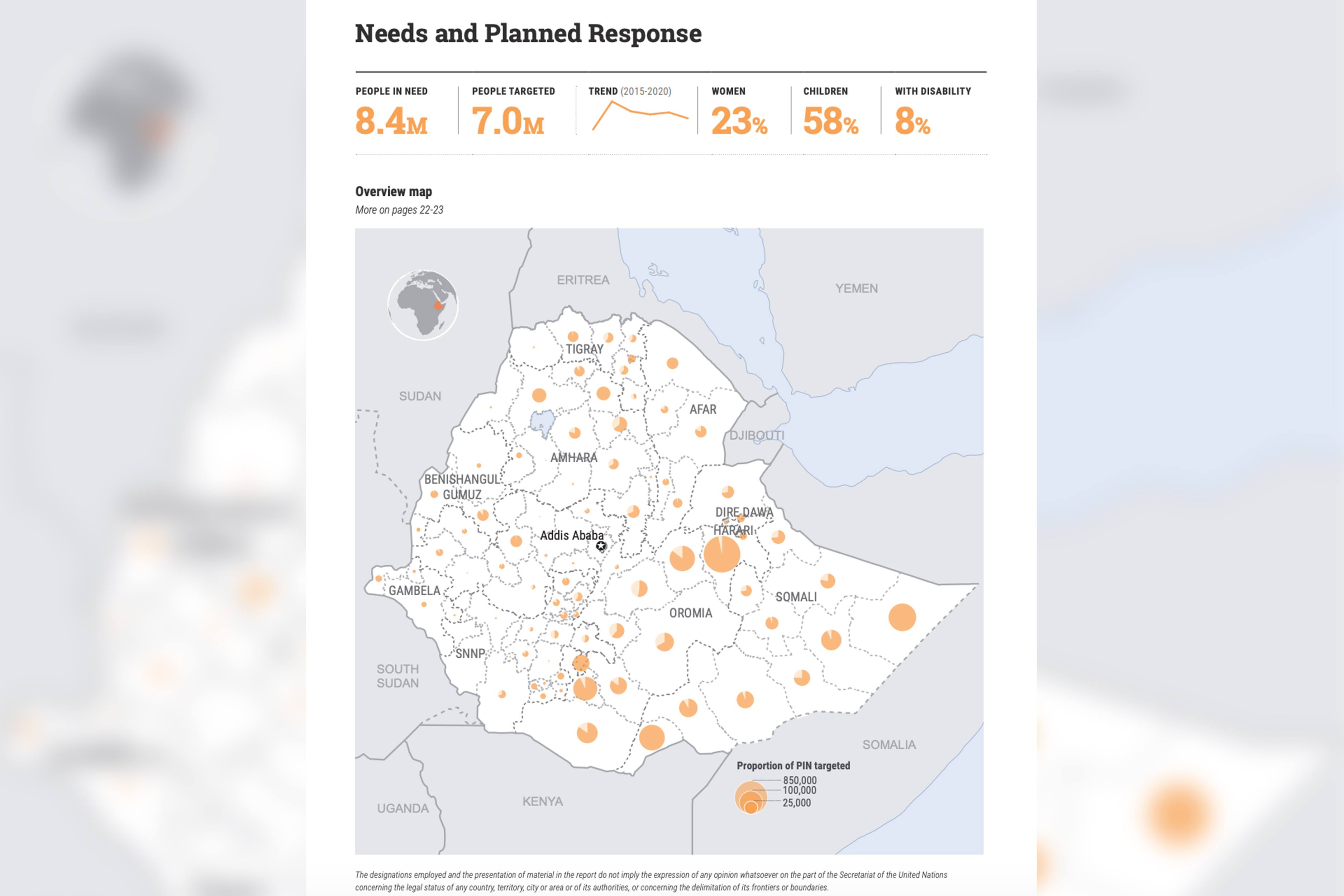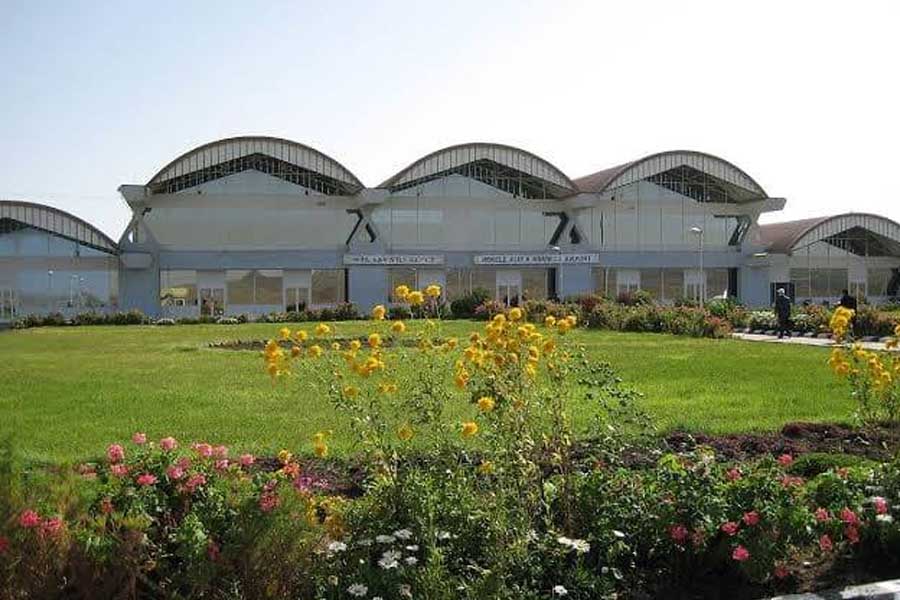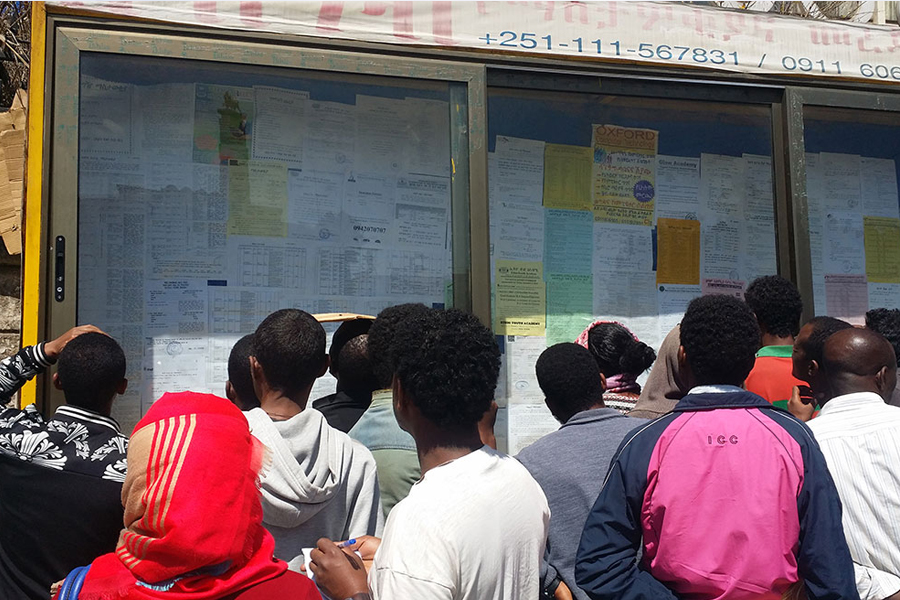
Editorial | Nov 21,2020
A recent assessment, carried out by a joint government and humanitarian actors group, has revealed that 4.5 million people in Tigray Regional State are in dire need of food assistance. The report came following assessment missions in the western and southern parts of the Regional State that lasted around 10 days.
The assessments revealed critically low food supplies, widespread looting, and bureaucratic hurdles for humanitarian access as fighting between the federal government and forces loyal to the region's former administration continues. The survey in the southern part of the region was conducted in Alamata, Enderta, Mehoni and Meqelle, while the western assessments included Dansha and Humera.
Despite the government's statement that law enforcement operations had come to an end in late November, security is volatile, with areas in the eastern, central and northwestern parts of the region, including Shiraro and Shire, inaccessible even to humanitarian aid workers, according to the assessment.
The current humanitarian crisis in the region has resulted in an additional 1.3 million people in need of assistance. Before the conflict, the region had 950,000 people dependent on food and non-food items support. Part of the report included details on widespread looting of administrative offices, health facilities and personal belongings of internally displaced people, which have reached 2.2 million in number to date.
Though overall death toll reports from the war in the region were not included, the report confirmed the killing of the conflict's fifth aid worker at Hitsats, one of the four refugee camps in the Regional State. Residents fled the conflict to neighbouring Sudan, where the number of refugees has surpassed 55,000, forcing Sudanese officials to open another camp in the country's Gedaref State.
However, electricity and telecommunication lines, shut off in the region since the military offensive was initiated on November 4, are slowly returning along with limited economic activities, according to the report.
The National Disaster & Risk Management Commission, which works alongside multiple aid organisations, has delivered 5,600tn of food relief to 332,000 conflict-affected people. At the same time, an additional 15,000tn of wheat is pending clearance from Djibouti port. The assessments also revealed that clearance for essential aid items takes anywhere between five and 10 days and that nearly 40pc of all cargo and mission requests are still pending.
Observable problems in the relief efforts are the lack of commitment on government's side and that of aligned coordination, according to Adane Tesfaye (PhD), director of the Institute of Disaster Risk Management & Food Security Studies at Bahir Dar University.
"This is something evident in Amhara Regional State; in Wolqait and Raya," he said. "The coordination is very loose despite the many bodies that are stating their involvement."
The expert explained that looting and loss of aid items could also be avoided by establishing a transparent system that will hold all involved parties accountable for the aid they receive.
"This can be achieved through daily reports and mapping out which bodies are involved in what activities," he said.
Issues of bureaucracy and the safe delivery of items can be resolved through allocating the necessary security personnel to accompany the trips, according to him.
The expert also stressed the importance of providing evidence-based reports on what is transpiring in the region by the government. This includes demonstrating the proper allotment of resources to instill confidence in supporting parties.
The transitional government of Tigray, tasked with care of the Regional State, has failed in its duty to properly administer it, according to Lilay Hailemariam, head of public relations in the administration.
"The people in the region are suffering from mismanagement of resources," he said. "There are food and medical supplies stored in warehouses that have yet to be distributed to people that are in serious need."
The Region's infrastructure has been demolished by the TPLF [Tigray People's Liberation Front], the opposition faction, including hospitals and schools, according to Lilay.
"There are close to 40,000 prisoners freed from jails across the region as the TPLF retreated," he said.
The interim government itself needs reform as it doesn't have a roadmap to serve the region's people, stated Lilay.
Though there is support from the federal government, properly administering the funds in the region has been difficult due to this. Consequently, civil servants in the region have gone months without their salaries, government offices are left without supplies, and the region’s inhabitants have been exposed to hunger, he said.
“We've informed the relevant government bodies and are awaiting a response,” said Lilay.
Currently, the Humanitarian Response Plan for the country's northernmost region is looking to source nearly 117 million dollars to address the immediate needs of 2.3 million people until the end of January. It has so far garnered 53 million dollars.
PUBLISHED ON
Jan 09,2021 [ VOL
21 , NO
1080]

Editorial | Nov 21,2020

Viewpoints | Mar 25,2023

Fortune News | Mar 13,2020

Verbatim | Nov 04,2023

Featured | Sep 06,2020

Viewpoints | Aug 10,2024

Radar | Jun 15,2024

Radar | Jan 29,2022

Agenda | Jul 22,2023

Commentaries | Jul 10,2021

Dec 22 , 2024 . By TIZITA SHEWAFERAW
Charged with transforming colossal state-owned enterprises into modern and competitiv...

Aug 18 , 2024 . By AKSAH ITALO
Although predictable Yonas Zerihun's job in the ride-hailing service is not immune to...

Jul 28 , 2024 . By TIZITA SHEWAFERAW
Unhabitual, perhaps too many, Samuel Gebreyohannes, 38, used to occasionally enjoy a couple of beers at breakfast. However, he recently swit...

Jul 13 , 2024 . By AKSAH ITALO
Investors who rely on tractors, trucks, and field vehicles for commuting, transporting commodities, and f...

Oct 25 , 2025
The regulatory machinery is on overdrive. In only two years, no fewer than 35 new pro...

Oct 18 , 2025
The political establishment, notably the ruling party and its top brass, has become p...

Oct 11 , 2025
Ladislas Farago, a roving Associated Press (AP) correspondent, arrived in Ethiopia in...

Oct 4 , 2025
Eyob Tekalegn (PhD) had been in the Governor's chair for only weeks when, on Septembe...